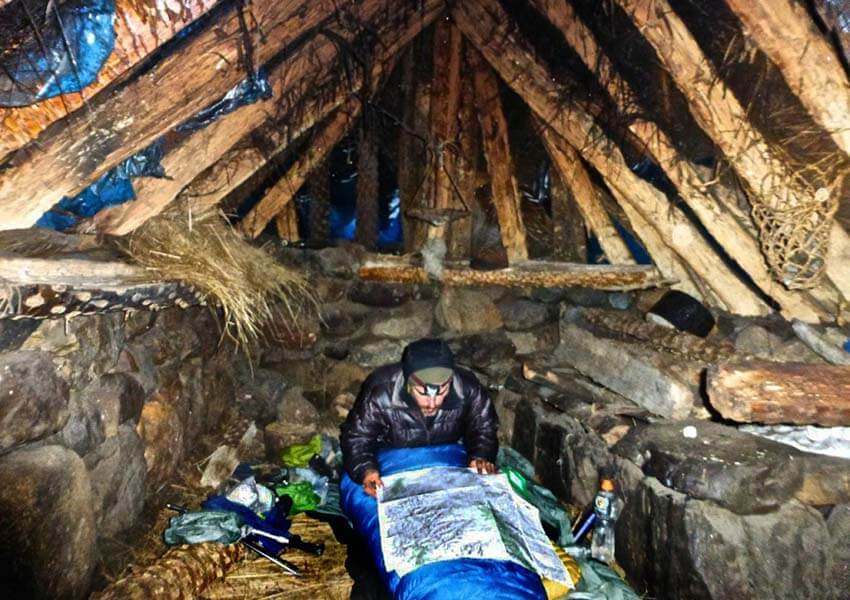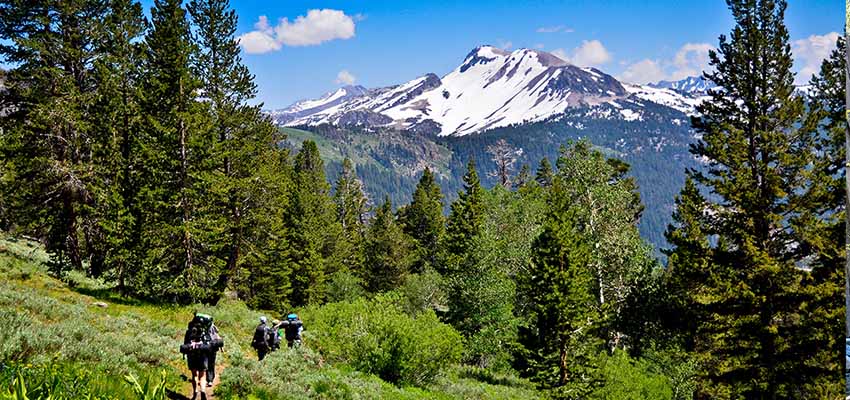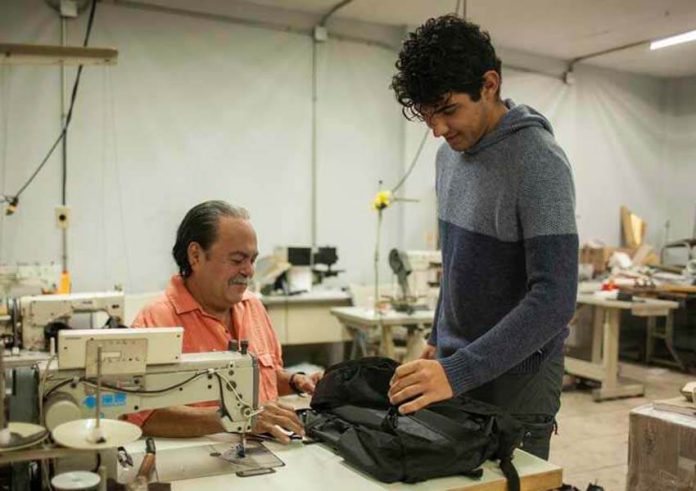When a hiker decides to spend the night sleeping under the stars, he or she becomes a backpacker and is immediately confronted by a dilemma: how can I get the most comfort at my campsite while carrying the least amount of weight?
Overnighting may require protection from the elements and the preparation of meals. Will you bring a tent? A sleeping pad? A cook stove? What about a water purification kit? An air mattress? A chair? A table? Just how far can you go with this?
A few times in the past, I have opted for so much gear that I was forced to forget about an ordinary knapsack and found myself carrying all my necessities in a huge backpack attached to an aluminum frame, upon which numerous extraneous items were piled or tied, making me look like an itinerant tinker from the days of the horse and buggy.
In the 1960s, it was not uncommon for trekkers to carry from 20 to 30 kilos of gear on their back!
Over the years, the trend has gone in exactly the opposite direction — to ultralight hiking.
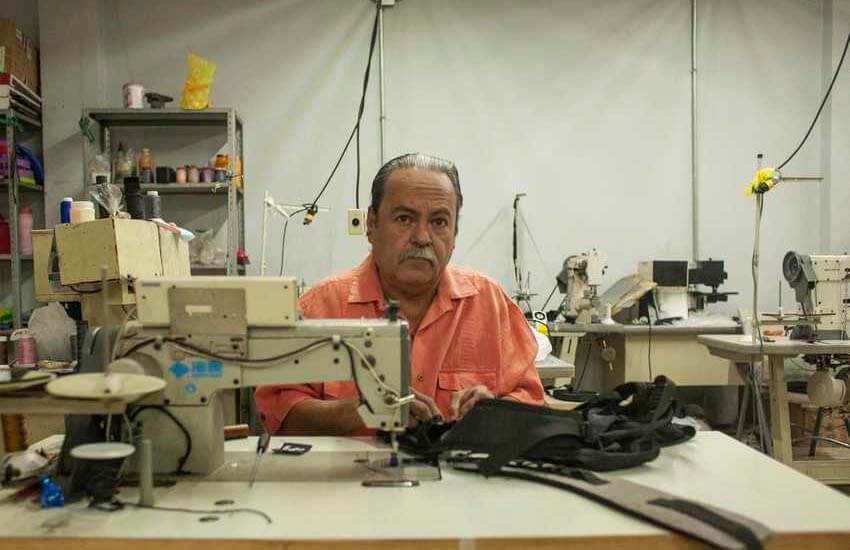
I first heard about this trend in hiking gear from long-distance hiker Cam Honan, who makes his base here in Mexico but frequently spends months trekking the longest trails in the world.
Honan, an Australian who uses the trail name “Swami,” has walked more than 96,000 kilometers in his lifetime and was named “the most traveled hiker on earth” by Backpacker magazine in 2015.
You may be surprised to learn that Swami typically carries on his back no more than three kilos of equipment, plus food and water.
His secret is simple: he takes full advantage of the wonderfully clever ultralight materials that have replaced leather, canvas, steel and rubber, allowing a modern backpacker to enjoy comfort without paying for it in weight.
Another one of these modern backpackers is 22-year-old Matteo Volpi, who grew up in Guadalajara and started a company, Volpi Outdoor Gear, for making and selling his own high-quality, lightweight hiking backpacks.
“I became interested in hiking and the outdoors when I saw a movie called Into the Wild,” Volpi told me, “which shows — for all of 10 seconds — the protagonist hiking along the Pacific Crest Trail [PCT] that runs through California, Oregon and Washington for over 4,000 kilometers, all the way from Mexico to Canada.”
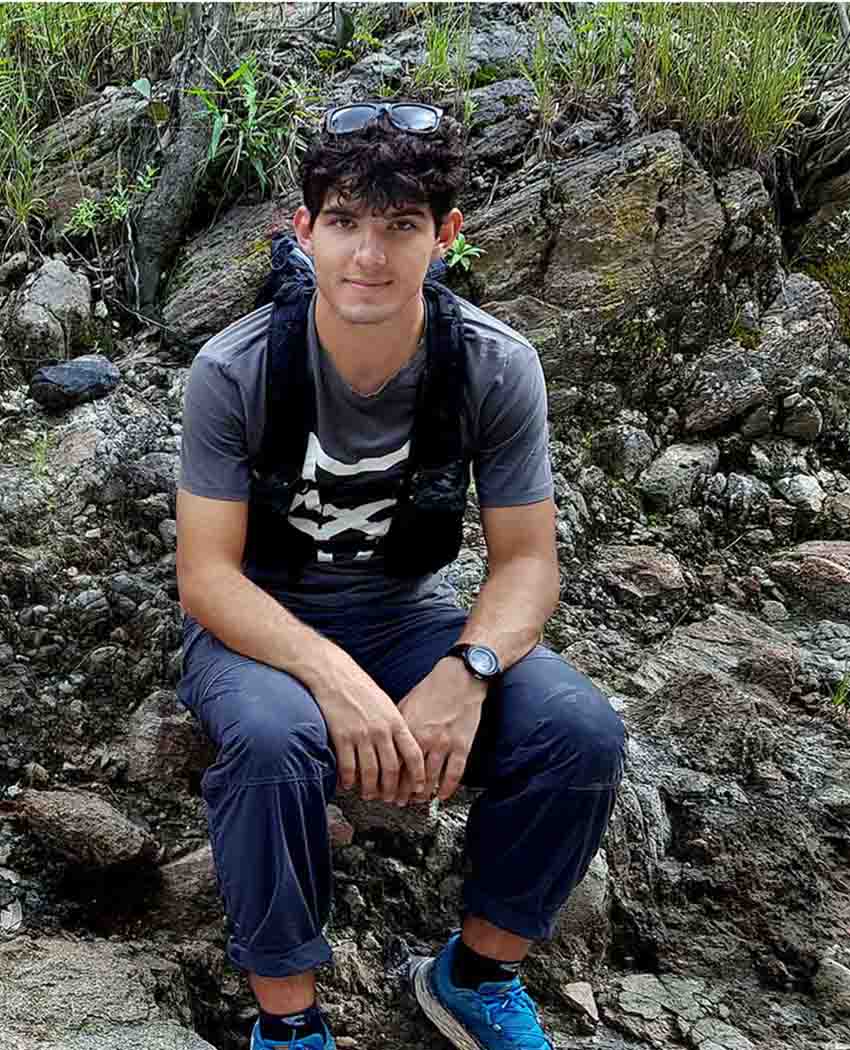
That 10-second glimpse was enough for him, he said.
“I decided then and there that one day I was going to trek along that trail, even though at the time I was just beginning high school,” Volpi said. “So I started working on this project, saving up money. And finally in 2019, I was able to do it.
“I hiked all the way from the Mexican border to Chester, California (the trail’s midpoint), which is a distance of 1,380 kilometers.”
Along the way, Volpi acquired his trail name, “Olive Oil,” a condiment for which he has a great fondness, perhaps inherited from his father, who was born in Italy. “On the PCT, I used olive oil in all my meals,” he explains, laughing. “I even drank it to finish what was left in the bottle before buying more at resupplies!”
It took Volpi 37 days to do his hike, covering 40 to 50 kilometers a day.
“I had a super-light tent made by Tarptent. This is a cottage industry brand from the United States. It weighs around 500 grams, and I prop it up with my hiking poles. I also have a down trekking quilt that serves me as a sleeping bag but weighs very little.”
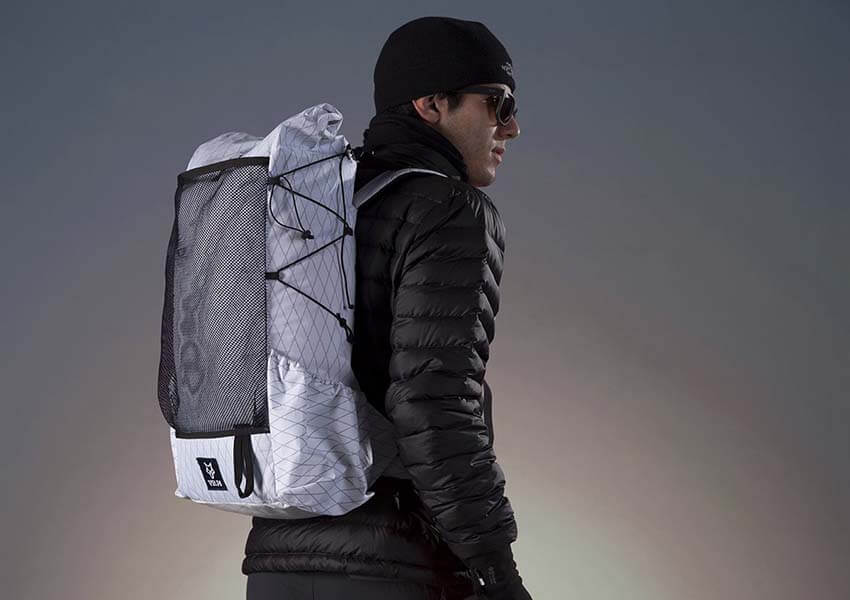
On that trek, he went without a stove, he said.
“I cold-soaked all my meals. For example, if you want to eat couscous, you just put the grain into a plastic jar, add water and throw the jar into your backpack, where it bounces around for half an hour, during which the grain absorbs the water and, voilà, you have a meal! It’s cold but it’s still good. So you don’t need to carry a stove or a gas can, and you need much less water,” he said.
“Other items I ordered from the U.S. were a down jacket, trekking poles, raincoat, rain pants, sleeping pad, a Columbia [brand] shirt and merino wool socks,” Volpi said. “The socks are made by Darn Tough in Vermont and have an unconditional lifetime warranty: a really good product. And [I wore] Altra hiking shoes. They make shoes for trail running, and thanks to them I never had one blister. Almost all my gear comes from small cottage companies.”
Volpi told me that the biggest problem for Mexicans who want to do one of these long-distance trails is getting all that high-quality ultralight gear.
“I had to buy everything from the U.S., but the duties they levy on this kind of specialized equipment are so high that they actually come up to more than the item you’re buying!” he said.
This situation got Volpi thinking about making his own backpacks. “I wanted to do it right here in Mexico, so I worked up a prototype of a frameless ultralight and showed it to a man I know who has spent his whole life making things like knapsacks and shoes, a real expert in stitching. His name is Don Pepe.
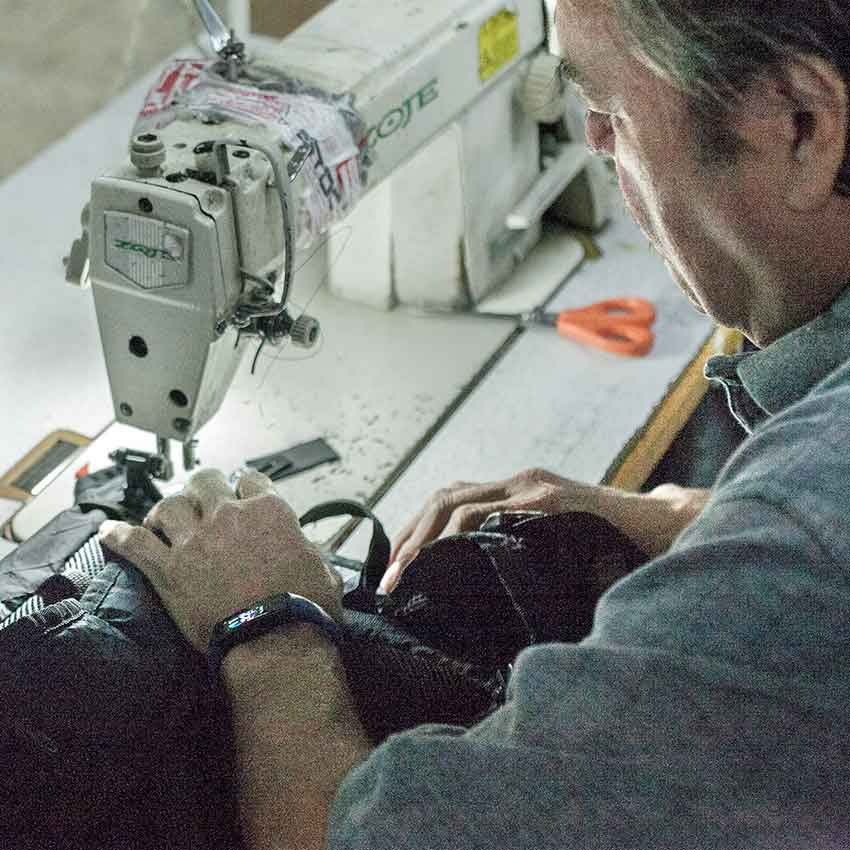
“Of course, he had never worked with ultralight materials before and maybe had never striven for such high quality, but he immediately knew what I was looking for. So we combined his skills with my knowledge of trekking and ultralight, and Don Pepe soon found himself five or six helpers.
“All of them are older people, by the way. They make a great team and really work together well.”
For months, Volpi and his team of senior citizens plugged away at their backpack, which is made of professional-grade materials made by Ripstop by the Roll, a high-end ultralight fabric supplier in the U.S., popular among small startups and cottage brands.
“Slowly but surely,” says Volpi, “we made our backpack better and better until we ended up with a really high-quality product. And because each one is handmade, you could say they are artesanal, handcrafted. I’m happy to add that we are now selling it both in the U.S. and in France.”
The Volpi 40-liter backpack weighs slightly less than 500 grams (17.6 ounces), light enough to allow you to carry just a little more olive oil!
Perhaps you, like one Volpi customer, will find that “it feels like I have nothing on my back,” and, yes, Volpi’s backpack has passed the greatest test of all:
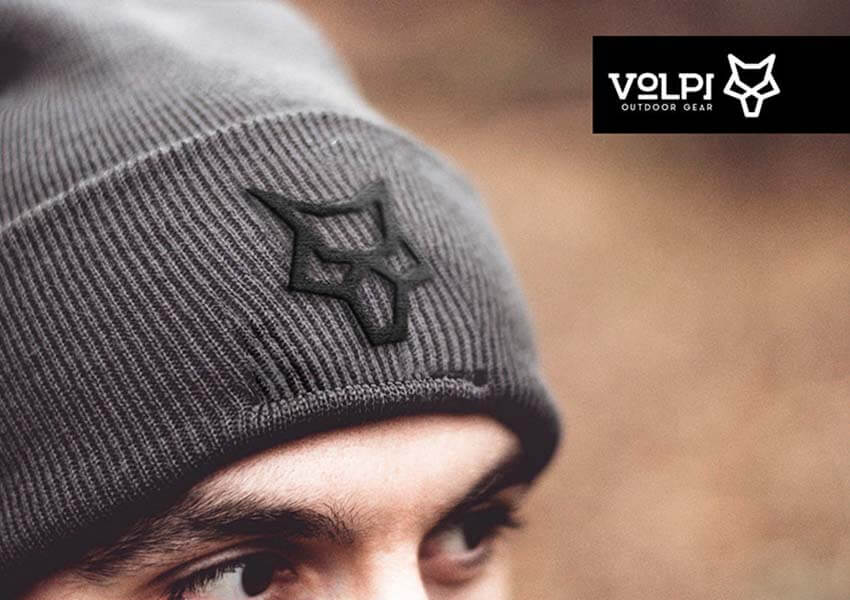
“I through-hiked the Pacific Crest Trail using this pack,” says trekker “Balloons” Orozco, “and loved it. It’s the lightest of the market for its capacity, well built, and at the right price.”
(To through-hike means to hike an established trail with continuous footsteps in one direction.)
You can learn more about Volpi and his made-in-Mexico ultralight backpack at the U.S. seller Garage Grown Gear‘s website and on Instagram.
The writer has lived near Guadalajara, Jalisco, since 1985. His most recent book is Outdoors in Western Mexico, Volume Three. More of his writing can be found on his blog.
